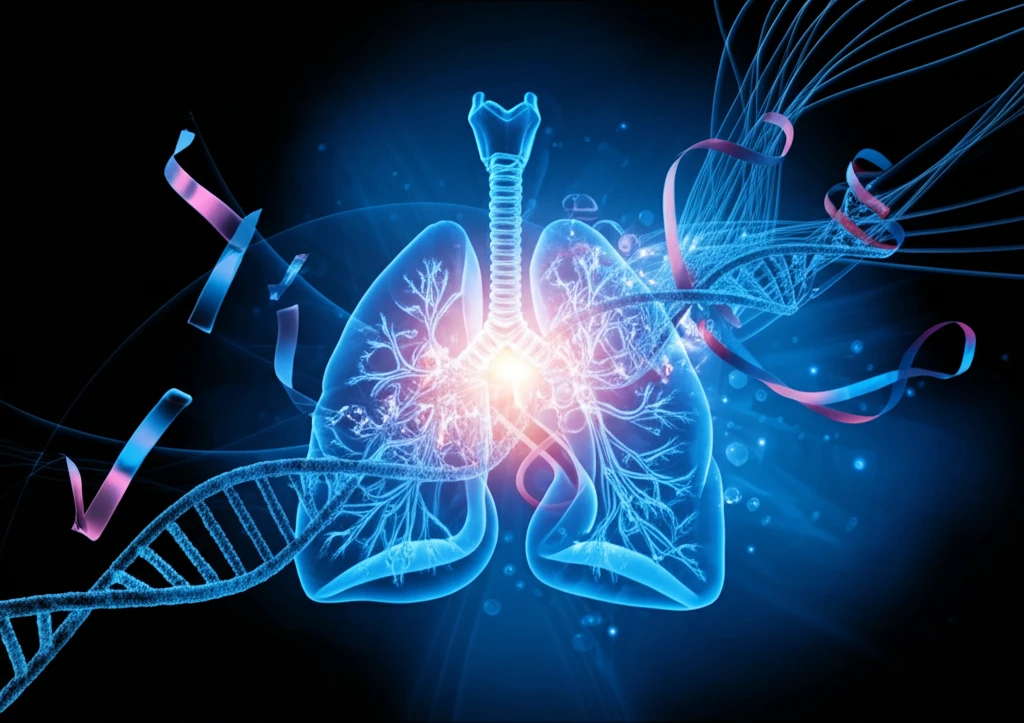
Lung Cancer Breakthrough: New Insights into EGFR Mutations and Magnesium's Role in Chemotherapy Support
"Explore the latest research on EGFR mutations in NSCLC, and how a modified magnesium supplementation regimen can improve outcomes for lung cancer patients undergoing cisplatin-based chemotherapy."
Lung cancer remains a significant global health challenge, but ongoing research continues to refine our understanding of the disease. Two recent studies presented at a thoracic oncology conference highlight important advancements in treating non-small cell lung cancer (NSCLC). The first study delves into the prevalence and characteristics of epidermal growth factor receptor (EGFR) mutations in NSCLC patients, examining how these mutations relate to patient survival and other clinical factors. The second focuses on improving the tolerability of chemotherapy by exploring a modified magnesium supplementation regimen during cisplatin-based treatment.
EGFR mutations are a key target in NSCLC therapy, especially in adenocarcinoma, a common type of lung cancer. These mutations influence how cancer cells grow and respond to specific treatments, making their detection and characterization crucial for personalized medicine. Researchers are continually working to understand the frequency of these mutations, how they vary across different populations, and their impact on patient outcomes.
Chemotherapy, particularly with cisplatin, remains a cornerstone of lung cancer treatment. However, cisplatin can cause significant side effects, notably nephrotoxicity (kidney damage), which can limit its use. Medical professionals are exploring strategies to mitigate these side effects and improve patients' quality of life during chemotherapy. Magnesium supplementation has emerged as a promising approach.
EGFR Mutations in NSCLC: What Do the Latest Findings Reveal?

A multi-center study involving 1352 NSCLC patients aimed to determine the frequency of EGFR mutations and their correlation with survival and clinicopathological features. This research builds on previous data to provide a more comprehensive understanding of these mutations in a specific patient population.
- The median age of patients was 59 years, with a follow-up time of 14 months.
- 26.2% of the patients were female, and 85.2% presented with stage IIIB-IV disease.
- Adenocarcinoma was the predominant histological subtype (86%).
- The EGFR mutation frequency was 22.3%, with exon 19 deletions being the most common type (63.0%).
- A significant correlation was found between EGFR mutation status and gender and smoking history (p=0.000 for both). Specifically, mutations were more prevalent in female patients and non-smokers or ex-smokers.
Improving Chemotherapy Tolerance: The Role of Magnesium
The study on magnesium supplementation during cisplatin-based chemotherapy provides valuable insights into minimizing treatment-related toxicities. By using a short hydration regimen with a modified dose of magnesium, healthcare providers can potentially improve the tolerability and safety of chemotherapy, leading to better outcomes and quality of life for lung cancer patients.
